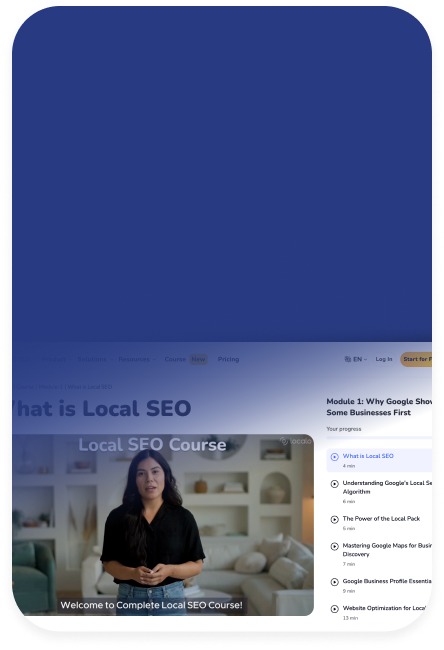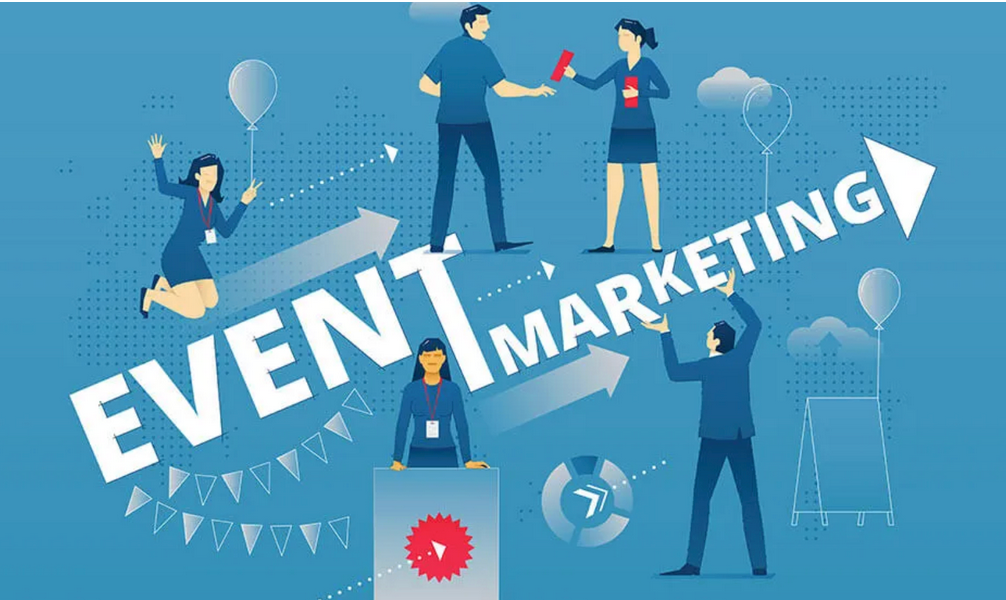
Ready to get more customers calling?
Take FREE Local SEO Course
Available now in English
Event Marketing - is a marketing strategy to promote a brand, product, service or company by organising or participating in events. It can be both in person events and virtual events, and serve as a platform for direct interaction with existing and potential customers, business partners and the media.

What does event marketing work?
Here are the key elements that make up an effective event marketing process:
- Planning and Strategy - at the outset, the objectives of the event must be defined.
- Selection of Event Type - the type of event should match the marketing objectives and the preferences of the target audience. Each type of event offers different opportunities to interact and engage participants.
- Promoting the Event - effective promotion is key to ensuring high attendance and participant engagement.
- Managing the Event - this includes logistics and operations such as venue selection, coordinating with service providers, managing attendee registration, preparing promotional materials and ensuring the event runs smoothly.
- Engaging Participants - during the event it is important to actively engage participants through interactive sessions, panel discussions, networking, workshops and other activities that foster relationship building and value exchange.
- Outcome Measurement and Analysis - analysis should include collecting feedback from attendees, measuring metrics such as number of attendees, engagement with individual sessions, leads generated, and ROI. This information is valuable for optimising future events.
- Follow-up After the Event - continuing to communicate with attendees after the event is just as important as the event itself. Sending thank you notes, event materials, special offers, and organising follow-up events can help maintain interest and build long-term relationships.
Types of Event Marketing
Conferences and Industry Fairs: Serve as a forum for industry professionals to network, share knowledge and present the latest trends and innovations.
- Workshops and Training: Organised to educate clients and partners, often focusing on specific skills or products.
- Webinars: Online events that allow for broad reach at a lower cost of organisation, ideal for product presentations, training or panel discussions.
- Promotional Events: Events aimed at promoting a specific product or service, often with entertainment elements.
- Charity and Social Events: Events that help build a positive brand image through community involvement or support for good causes.
Advantages of Event marketing
Event marketing offers numerous advantages that can contribute significantly to a company’s marketing and business success. Here are the key benefits of implementing an event marketing strategy:
- Direct interaction - event marketing allows direct contact with existing and potential customers, which is invaluable in building strong, personal relationships.
- Increased brand awareness - events are an excellent opportunity to expose your brand in front of a large, often concentrated audience. This can not only build brand awareness, but also enhance positive image and reputation.
- Generating sales leads - event attendees often already show a degree of interest in the offer, making it easier to collect their contact details and further nudge them through the sales process.
- Education and product demonstration - live demonstrations, product samples, workshops and training are all excellent ways to show the value of an offering and convince attendees to buy it.
- Networking and partnerships - industry events, such as conferences and trade shows, are ideal places to network and build partnerships.
- Gathering feedback - interacting with event attendees allows you to directly gather feedback on your products, services and overall brand perception.
- Enhancing customer loyalty - events can be used not only to attract new customers, but also to nurture relationships with existing ones.
- Increasing reach through social media - events often generate significant social media traffic when attendees share their experiences online.
- Measurement and analysis of results - marketing events offer the opportunity to accurately measure the effectiveness of various promotional activities.
Summary
Event marketing is a dynamic and multidimensional strategy that allows brands to interact directly with existing and potential customers by organising or participating in a variety of events. It is an effective tool for building brand awareness, generating leads and strengthening customer loyalty through direct product demonstrations, education and personal relationships. The use of event marketing also allows for the effective collection of valuable feedback from attendees, which is key to optimising a company’s products and services.
![What is Event Marketing - Definition [Marketing Dictionary]](/assets/img/dictionary-background.webp)
